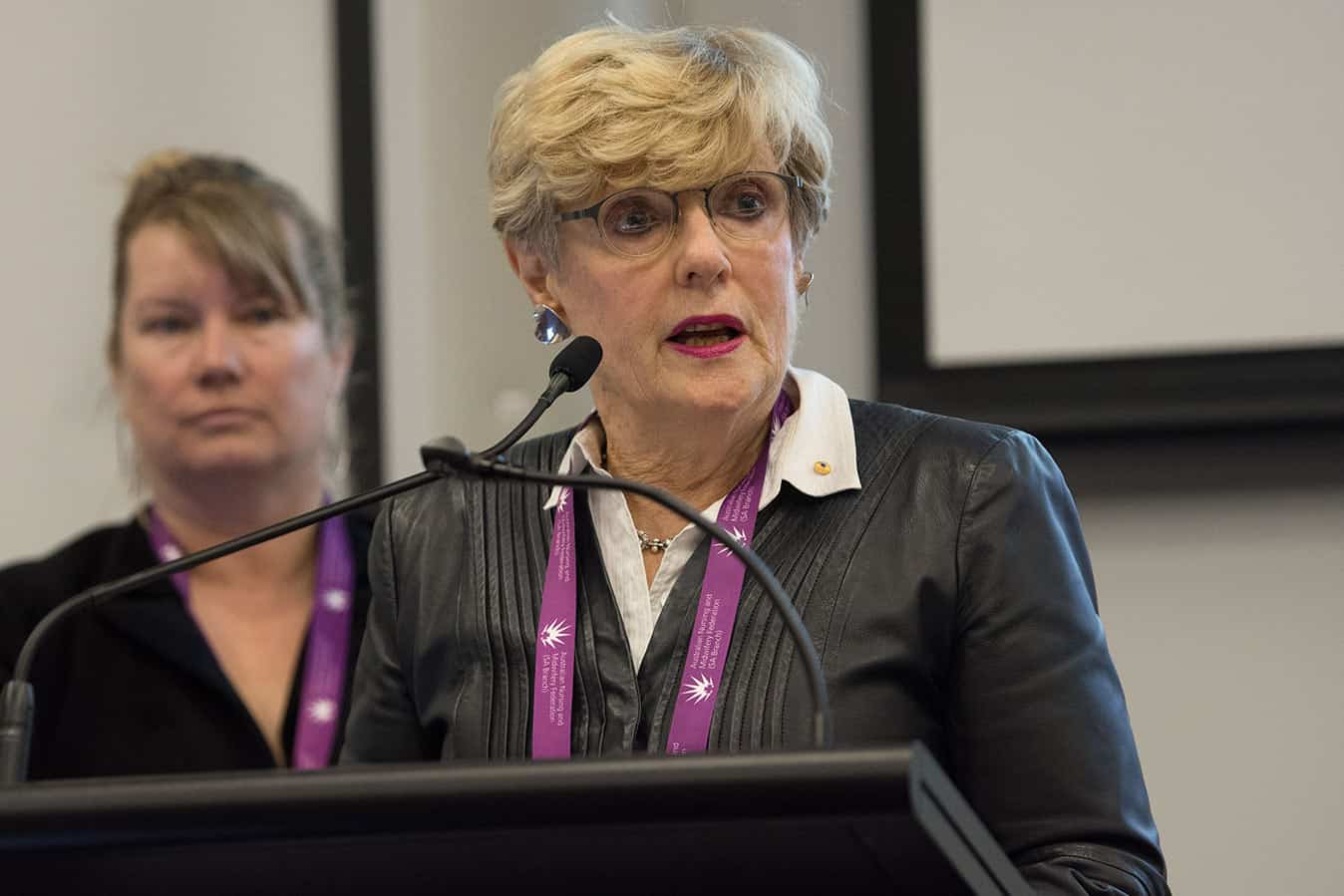In almost two years of operation, the Rosemary Bryant AO Research Centre has secured more than $2.7 million in funding to help it drive high impact nursing and midwifery research shaping meaningful clinical and workforce advances within the healthcare system.
The end goal is to improve the health and welfare of communities.
A partnership between the Australian Nursing and Midwifery Federation (SA Branch) and the University of South Australia, the research centre is aiming to strengthen the role of the nursing and midwifery professions across the health system through its projects and to become recognised as a leader in the field both in Australia and internationally.
Addressing the ANMF (SA Branch) Annual Professional Conference earlier this year, Dr Rosemary Bryant AO stressed it was important to build an evidence-based platform of healthcare in order to advance nursing and midwifery.
“We need to be able to use real-time data to make care decisions in this technologically changing environment in which we work and we need to use global evidence to support and form our decisions,” Dr Bryant said.
“It’s really important as it demonstrates a commitment to transparency and of reasoning behind polices and practice.
“Having evidence and having our centre, the work we do, we hope will improve quality of care and access to data means you can monitor outcomes and establish agreed care, and of course it improves outcomes.”
Rosemary Bryant AO Research Centre Director, Professor Marion Eckert, outlined the centre’s growth since it was established and said it was looking to realise its vision over the next five years of translating nursing and midwifery research into optimal health and welfare for the community.
“We’ve been really aggressive around our marketing and trying to push our engagement,” she said.
“We have developed a Strategic Plan and we’re really excited. We’ve listened to what people have said about what they want in a strategy, what’s important to them in their clinical environment, who we are as nurses and midwives, and what we’re trying to achieve and where we want to go into the future.”
Professor Eckert listed some of the research centre’s current work, including investigating the quality of life of Aboriginal people as they navigate their way through the health system, exploring dementia, and BreastScreen Australia accreditation implementation.
The centre is also reviewing how models of midwifery care have changed over the past 25 years and looking into safeguarding the future of the nursing and midwifery workforce and tackling growing issues such as burnout.
Significantly, the Rosemary Bryant AO Research Centre recently conducted a climate survey to find out how South Australian nurses and midwives feel about their work.
The survey pinpointed four domains – organisational factors, practice environment, individual outcomes, and quality of care – and sought to find out how the South Australian workforce felt during the transition to the new Royal Adelaide Hospital (RAH).
Seventy-five percent of respondents were registered nurses and 25% were enrolled nurses.
Professor Eckert said findings regarding work satisfaction showed 53.7% of respondents were satisfied or very satisfied with their position and 75% were satisfied about being part of the profession.
Worryingly, while 53.7% of survey respondents said they did not plan to leave the profession in the next five years, 12.5% revealed they are considering leaving within the next year and 34.1% are contemplating going elsewhere in the next five years.
“That means a huge amount of corporate knowledge, a huge amount of technical knowledge, is going to walk out of our health system and how do we retain that for the future?” Professor Eckert posed.
Other themes that emerged in the survey included workload burden, staff shortages, lack of support from management, inappropriate skills mix and paperwork and administration burden.
Burnout was also high on the list.
“People feel that the emotional exhaustion is quite high across the system so this is something that will need to be looked at by the networks and how they deal with this to support staff.”
Elsewhere, Professor Eckert said the research centre had established Seed Grant Funding to support early and mid-career researchers to contribute to strengthening the nursing and midwifery workforce across the health system through the advancement of evidence-based healthcare.
One of the initial projects supported by the $12,000 seeding grant involves a PhD student investigating nurse-led models of care for chronic disease management.
As the Rosemary Bryant AO Research Centre nears two years of operation, Professor Eckert said its short-term objectives would focus on developing the centre’s brand, working on its governance, fostering national engagement and partnerships, and getting its research published widely in esteemed journals to maximise impact.








